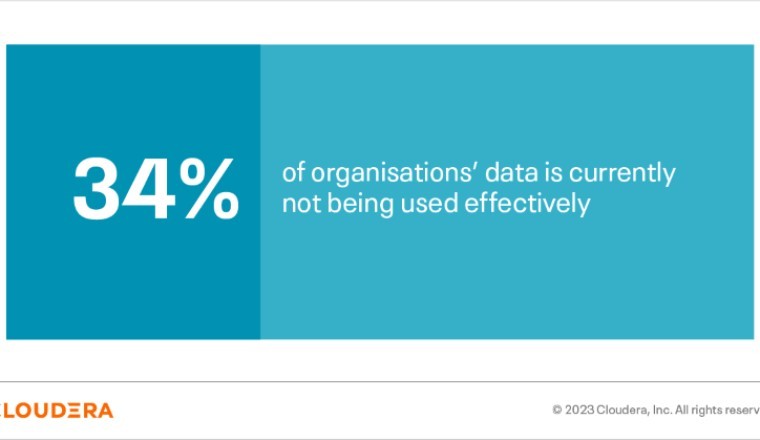
Dubai, United Arab Emirates — A new EMEA survey report by Cloudera, the hybrid data cloud company, revealed that organisations in the Middle East embrace the public cloud as 71% already use the public cloud and 86% plan to move more data to the cloud in the next 1-3 years. But they currently estimate not using nearly 34% of their data effectively.
Cloudera surveyed IT Decision Makers (ITDMs) across the EMEA region to learn about their organisation’s cloud and data management practices, identifying the challenges businesses face in making their data actionable. The study was consulted as part of their research for Evolve Dubai, set to occur on the 18th of May at the Museum of the Future, Dubai.
The study revealed that organisations within the Middle East are progressively turning to cloud solutions. Over the past 12 months, 71% of organisations within the region have moved their data to the public cloud.
The study identified a consistent need for enhancement within the region, with 86% of organisations looking to move more data to the cloud over the next three years, citing empowering faster innovation (47%) and improving sustainability (42%) and data accessibility (40%). Yet at the same time, 90% plan to repatriate some data back to on-premises environments over the same period.
Although the Middle East's cloud adoption journey shows great promise, many organisations have yet to uncover the full potential of this transformative technology. IT complexity and integration challenges (60%), non-compliance-related cybersecurity concerns (58%), and Data governance and compliance concerns (49%) were identified as the main reasons for organisations not moving more of their data to the cloud.
66% of respondents in the Middle East agree that having data across different cloud and on-premises environments makes extracting value from all the data in their organisation very complex. However, a majority of organisations (72%) currently store data in a hybrid environment, meaning they utilise both the on-premises/private and public cloud.
“Many organisations are going ‘all in’ on the cloud, only to then find themselves needing to move some data back on-premises for cost, governance, and data sovereignty reasons. With data sitting across a mosaic of hybrid cloud environments, many organisations are finding it difficult to fully extract value from their data assets,” says Ahmad Shakora, Group Vice President, Emerging Markets at Cloudera. “Organisations need the capability to securely extract value from their data, regardless of where it resides. But with the emergence of modern data architectures, organisations can drive more value from their data and optimise their cloud costs at the same time.”
Organisations are increasingly embracing data analytics to extract more value from their data. IT departments have the most significant requirement for data analytics (76%), followed by operations (48%) and sales and marketing (46% respectively). However, 84% of Middle East respondents believe their organisation has too many data analytics tools and are concerned about sprawl. Yet, a majority (74%) are fully confident they know how many data analytics tools they have deployed across their organisation.
Regarding the business objectives of organisations that drive analytics initiatives in the region, the research found that 44% focus on minimising business risk and reducing costs, whereas 42% want to ensure ESG and regulatory compliance. Not even a quarter (24%) focuses on increasing revenues.
Overall, the research reveals that data silos will continue to present a challenge for many organisations. More than 7 in 10 (74%) ITDMs say siloed data is preventing their organisation from making real-time decisions, and 74% believe their organisation has lost money as they are unable to make decisions quickly because of data siloes.
“While different departments want to harness the power of data analytics to gain a competitive edge, deploying multiple point solutions can add layers of complexity and silo insight,” continues Ahmad Shakora. “At a time when all organisations today want to move faster, they need to stay ahead of the data curve. Those that are capable of harnessing their data in a rapid, cost-effective manner – no matter where it is located – will find they have a significant competitive advantage.”



















Facebook Conversations
Disqus Conversations